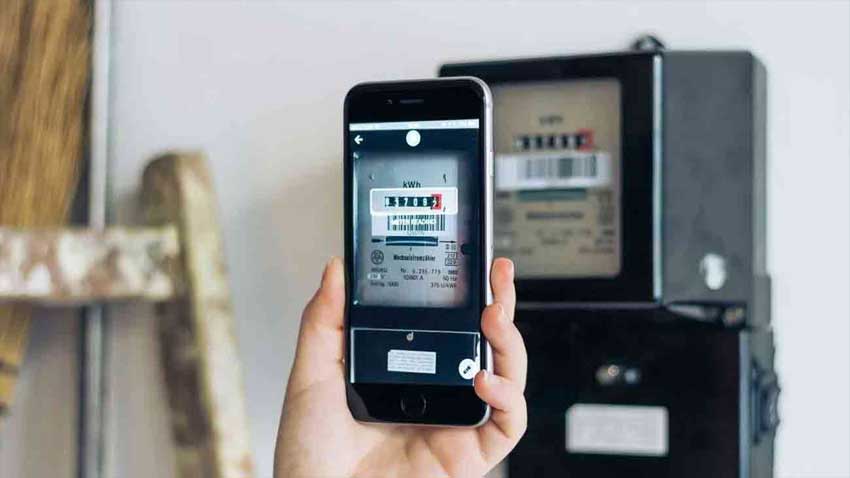In a groundbreaking move towards enhancing transparency and consumer empowerment in the power sector, Pakistan’s “Apna Meter, Apni Reading” initiative has officially achieved a remarkable milestone by surpassing 1 million active users. This achievement marks a transformative shift in how electricity billing is handled, reflecting a wider national trend toward digital governance and participatory utility management.
Launched under the broader “Power Smart” electricity reform strategy earlier this year, the app was designed to address persistent challenges in the utility sector ranging from inaccurate bills to limited accountability, and high administrative costs. Traditionally, meter readings in Pakistan relied on manual visits from utility employees, often leading to errors, inflated bills, missed readings, and poor customer service. The new model flips that responsibility, putting power literally in the hands of the consumer.
Using the app is simple yet effective. Users are allowed to take a photo of their electricity meter during a specific submission period. The image is then uploaded through the app, which uses backend validation to verify the reading. Once confirmed, the bill is automatically calculated and generated, removing the guesswork and delays associated with conventional methods.
The app also reflects a strong focus on inclusivity. Recognizing Pakistan’s linguistic diversity, the interface has been made available in Urdu and four regional languages, thereby removing barriers for users from rural areas and marginalized communities. This deliberate design choice aims to ensure that citizens from all walks of life can engage with the platform confidently and independently.
One of the most significant innovations in the app is its functionality for those in the “protected consumer” category those who qualify for government-subsidized electricity due to their low-income status. The app incorporates a cut-off mechanism, which locks out late submissions. This prevents consumers from being bumped out of subsidy eligibility due to incorrect or late readings, thus safeguarding the integrity and fairness of the subsidy system.
Surpassing one million users within such a short span is not just a tech adoption story it is a powerful indicator of consumer trust and satisfaction. This user-driven adoption showcases how digital solutions can build transparency, increase consumer control, and reduce friction between service providers and households.
Moreover, the self-meter reading initiative is yielding benefits at multiple levels:
- Enhanced Consumer Autonomy: For the first time, electricity users in Pakistan can monitor and control how their bills are calculated, reducing dependency on field agents and eliminating potential manipulation or miscommunication.
- Operational Streamlining for Utilities: By cutting down the need for manual meter reading visits, energy companies are witnessing lower operational costs, better route planning, and more efficient data collection.
- Improved Subsidy Delivery: With direct user input and cutoff deadlines, subsidies are being more accurately targeted to deserving households, minimizing fiscal leakage and fraud.
- Systematic Accuracy: The use of photographic evidence and backend AI validation ensures precision in meter readings, thus lowering the number of billing disputes and unnecessary customer support tickets.
The success of the app also opens the door for a wider digital transformation in the energy and utilities sector. As the government and private power distribution companies continue to receive positive feedback, there are growing calls to expand the app’s capabilities. Suggested improvements include:
- Integration with mobile wallets and online bill payment gateways for seamless end-to-end experiences.
- Introduction of usage analytics and energy-saving tips based on user data, helping consumers manage their consumption more effectively.
- A notification system for real-time alerts, bill submission deadlines, and potential overuse based on historical consumption.
- A centralized platform where consumers can log complaints, track resolution status, and receive feedback from DISCOs (Distribution Companies).
This initiative also aligns with Pakistan’s broader vision of digitization, citizen participation, and inclusive governance. It complements existing e-governance tools and strengthens digital literacy across the population.
As climate-related energy demands increase and power consumption becomes more scrutinized globally, initiatives like “Apna Meter, Apni Reading” place Pakistan among forward-looking nations actively seeking to modernize their utility sectors. The focus is no longer just about cost recovery; it is about consumer trust, sustainability, equity, and digital rights.
To conclude, crossing the one million user mark is more than a milestone it’s a testament to digital transformation in action. It shows how technology, when designed thoughtfully and deployed strategically, can redefine public service delivery in Pakistan and ensure a smarter, fairer, and more accountable energy future.



Comments (0)
No comments yet. Be the first to comment!
Leave a Comment